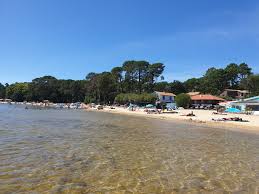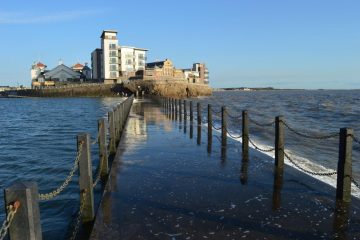Exploring Cazaux: A Hidden Gem on the French Coast

Introduction
Situated on the southwestern coast of France, Cazaux is a quaint seaside commune in the Arcachon Bay area of the Nouvelle-Aquitaine region. Despite its small size, Cazaux holds significant cultural and ecological importance, making it a treasure worth exploring. The town is celebrated for its picturesque landscapes, rich history, and the serene beauty of its nearby sandy beaches, which have made it an appealing destination for both locals and tourists. In recent years, Cazaux has been emerging as a prime spot for nature enthusiasts and holiday-makers looking to experience the genuine charm of French coastal life.
Cultural Significance and Attractions
Cazaux is renowned for its historical heritage, including the ancient church of Saint-Vincent, which dates back to the 19th century. The architecture reflects traditional styles and offers a glimpse into the town’s past. Additionally, the renowned oyster farming in the region establishes Cazaux as a key player in local gastronomy, giving visitors the chance to sample fresh seafood delicacies.
The commune also boasts nature reserves that contribute to its ecological significance. The surrounding lakes and forests serve as habitats for birds and other wildlife, attracting nature lovers and bird watchers. Notably, the nearby Lac de Cazaux, one of the largest natural lakes in the region, offers recreational opportunities such as fishing, sailing, and kayaking, making it a perfect spot for outdoor activities.
Recent Developments and Future Prospects
As Cazaux continues to gain recognition, local authorities have been working to improve infrastructure and tourism facilities, aiming to enhance the visitor experience while preserving the town’s unique character. Recent initiatives include the development of cycling paths and walking trails, encouraging eco-friendly travel within the area.
Experts predict that Cazaux may become a more prominent tourist destination, particularly as travellers seek less commercialised locations. The growing awareness of sustainable tourism means Cazaux could attract visitors interested in nature, culture, and community-oriented experiences.
Conclusion
In conclusion, Cazaux is a remarkable destination that embodies the charm of a traditional French seaside town. With its deep-rooted culture, rich history, and commitment to preserving its ecological beauty, Cazaux is poised to captivate an even larger audience in the coming years. For readers seeking an authentic experience in a lesser-known part of France, Cazaux presents an ideal getaway.






